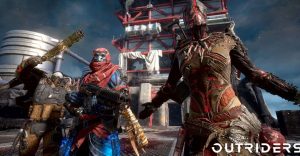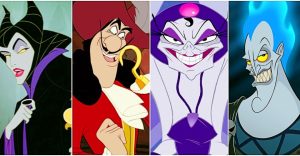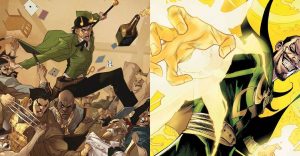Who Dark Souls’ Real Villain Is (Not Gwyn)

The unique, often ambiguous story telling in Dark Souls can make players question who exactly is the central villain in the game. While the protagonists’ main goal is to defeat the final boss, there is a lot of moral grey area which makes players question the validity of the Chosen Undead’s actions. Given the boundless slaughter the player commits, the true villain of Dark Souls may in fact be the player themselves.
[Warning: Dark Souls spoilers ahead]
Throughout the course of the Dark Souls franchise, players must brave enemies and bosses as they strive to collect souls and gain Humanity. The Chosen Undead is a martyr, destined to confront Gwyn Lord of Cinder at the heart of the Kiln of the First Flame. This is the pinnacle moment in the game where the player must decide the fate of humanity and all the inhabitants of the Kingdom of Lordran. In the process of reaching their destination, the player is forced to leave behind a trail of blood and bodies. Whether the bloodshed validates the end result is questionable.
Players will be facing many powerful enemies as they make their way to the Kiln of the First Flame. However, not all bosses need to be slain in order to progress the story. In fact, there are quite a few optional bosses like the Gaping Dragon which can be skipped altogether without impacting the game’s progression. Alternatively, Dark Souls players may avoid further bosses depending on the game route they take. Given how central arena-style combat is to the series, many players opt to slay as many bosses as they can. Whether it be for exclusive item drops or simply a want to kill them, most choose to not skip bosses at all. Seeing as many of these bosses are just doing their jobs or are non-aggressive until provoked, this ultimately leads to a lot of needless bloodshed that can be avoided.
Dark Souls’ Central Villain Might Be The Player

These combat encounters are done with the sole intention to collect their souls in order to gain more power for the player. This selfish act is what drives the slaughter of many an innocent creatures. In the case of the Great Grey Wolf Sif, players cannot avoid fighting him in order to attain a critical game item. However, that does not excuse the fact that, should players have gone through the “Prepare to Die” DLC, they establish a close friendship with Sif. In the end, the boss is clearly reluctant to fight the player and simply does so in order to protect the grave of his dear departed master. Even still, the player kills Sif for nothing more than a ring. Much of the Chosen Undead’s actions are primarily driven by self gain. While their end goal is to help save the people of Lordran, they are killing many of them in order to do so.
Gwyn is noted as being the central villain of Dark Souls. However, he is ultimately doing what he thinks is best. He is doing what he can to prolong the Age of Fire, a time that he views to be filled with prosperity. While the Chosen Undead is said to surpass him and extend this era, the player can choose to instead plummet the world into the Age of Dark. The era is said to start the rise of humanity, but what that truly entails is unknown. Gwyn is fearful of what could be lingering in the dark and his insanity has driven his corruption, but should the player choose to kill him and extend the Age of Fire, they are no better than he is.
The moral ambiguity in the game makes its story a lot more meaning and complicated. Dark Souls is like the real world, the divide between good and bad is never crystal clear. It all depends on the perspective that players take and how they interpret the actions of others. While Gwyn is the final boss of the game and thus viewed as the central antagonist, it’s arguable that the player themselves is causing the most amount of damage. Who the real villain is is ultimately up to the player to decide.
About The Author

















